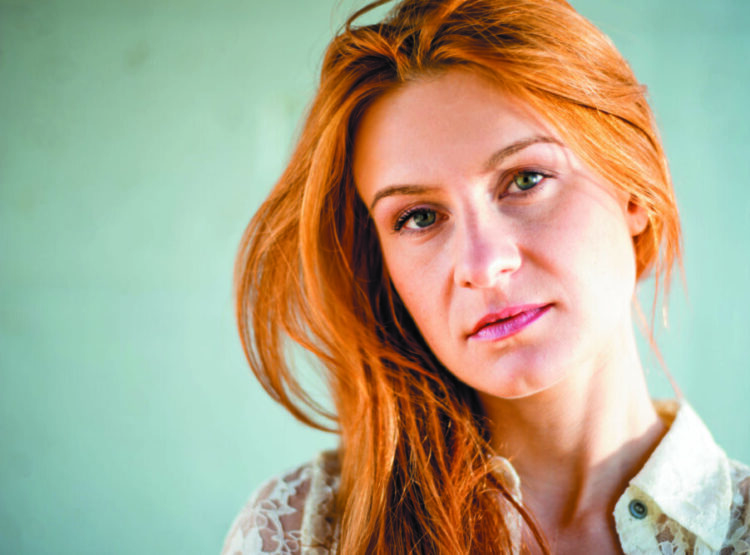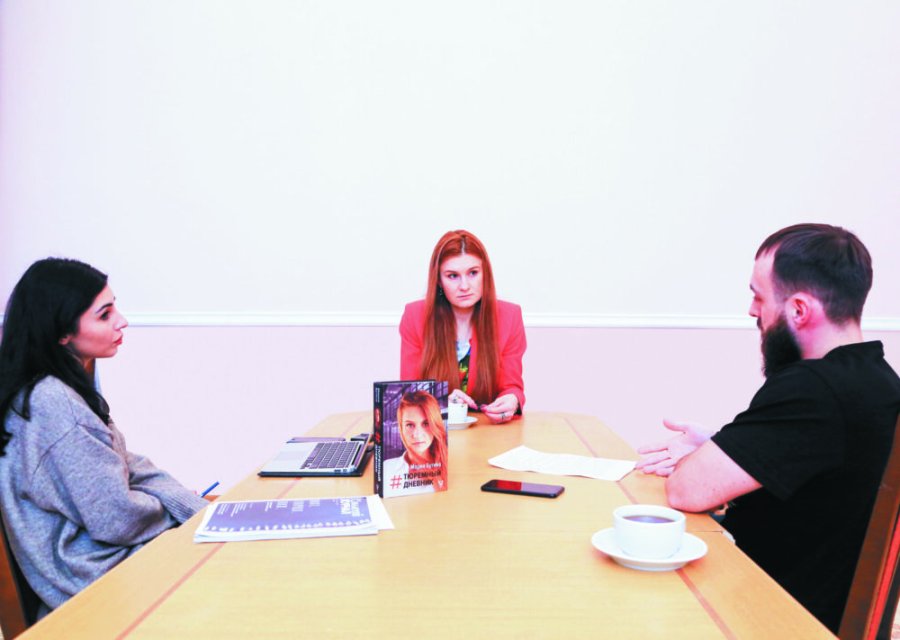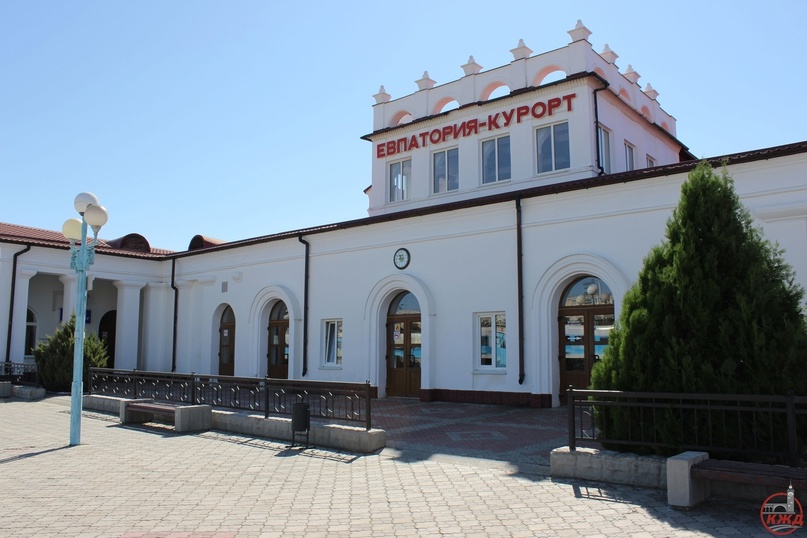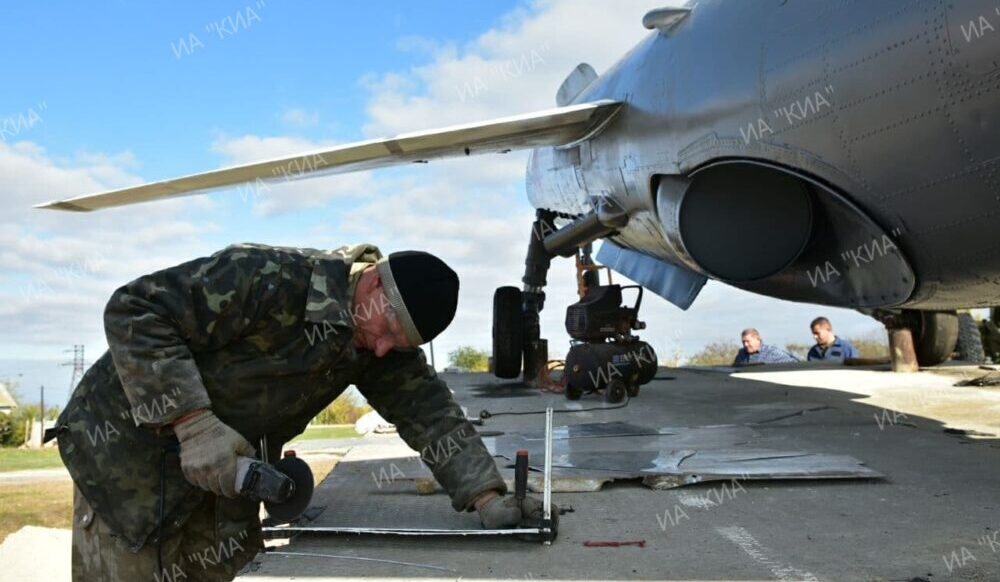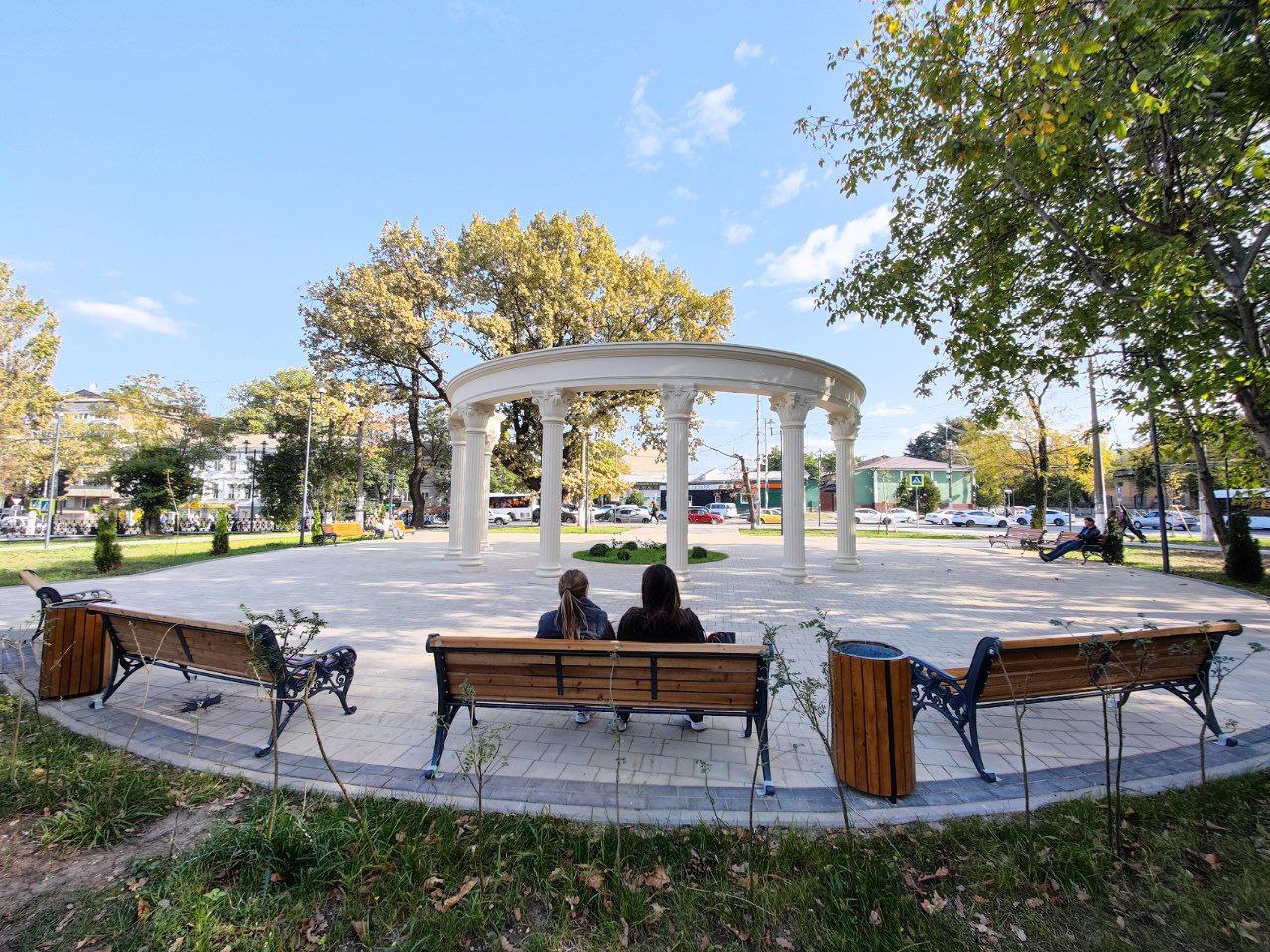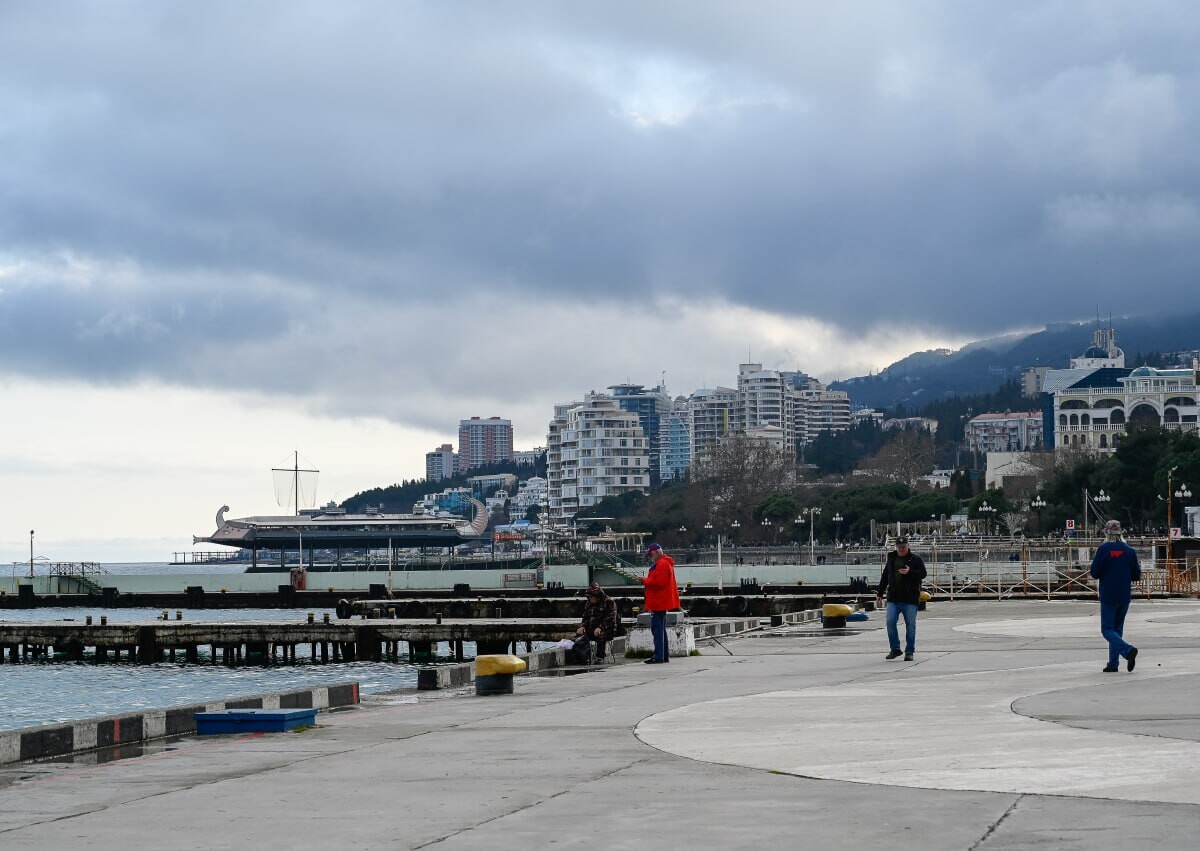A political activist, writer, journalist, member of the Civic Chamber of the Russian Federation Maria Butina presented her book “Prison Diary” in Crimea, which is based on the notes she took when she was incarcerated. It tells the whole truth about the arrest in USA on the charge of working as a foreign agent, about more than 50 hour interrogations in the concrete bunker and year and a half spent in the jail… American investigators tried not only to pry the information “Who is Mr.Putin?” out of Maria and how many times she met with “mister Trump” (spoiler: never!), but also find out about the Crimean events in 2014. Unfortunately, a large chapter about the peninsula wasn’t included into the recently published book, though “The Crimean Magazine” was able to “elicit” the details of the “Crimean interrogation” from the most “incredible Russian prisoner”.
CM: We are glad you got here. Beginning from September, after meeting you at the forum in Sochi, we planned to conduct an interview with you. We didn’t suppose we would be able to meet you again, but already in Crimea…
— Everything happens not coincidentally. Crimea is a special territory for me. Crimeans are the special people, as you are persecuted as I am. I am also prohibited from entering a range of countries and Ukraine demanded of my extradition earlier… We have that in common. I visited Crimea right after the referendum and several times again before my trip to USA. I wanted to come back to Crimea and it happened that my book “Prison Diary” had been published recently, so I was invited to address to the local youth. And as always, Crimeans are Crimeans! May be your region is being changed and roads become better maintained. However, the local people remain amazing and hospitable ones.
CM: It’s very pleasant to hear. By the way, you’ve mentioned the roads. Have you noticed any changes for these days you have been staying in Crimea?
— I have such a feeling that this city and the whole region rises from the ashes like a phoenix. The first time I arrived here, the scene was dreadful… For the first time I have seen a new airport. Mildly speaking, the old airport was so-so… I remember when the plane landed, it was moving along the airstrip too much time. It looked like it lasted infinitely. Currently, you have got a modern airport, which is not worse and even better than European ones. Needless to say, I can see the overall inspiration, it didn’t get away for seven years of Crimea’s reunification with Russia. I am glad to see that enthusiasm. Perhaps, only yesterday I fully realized what a strong move was made by Crimeans in 2014. You didn’t know how that story would end. Despite all that, people assumed responsibility and made the most correct political move for the last years of our country’s life. It takes much courage. I respect you for that. To my mind, if we look at the map of Russia, then we can say: the brain is located in Moscow — it’s one cerebral hemi sphere, the other hemi sphere called the creative thinking is located in Saint Petersburg and the heart lives here in Crimea.
CM: You lived abroad for some time in USA… As for us, Crimeans, we are curious to know what do ordinary Americans think about us and how do citizens of USA perceive Crimea?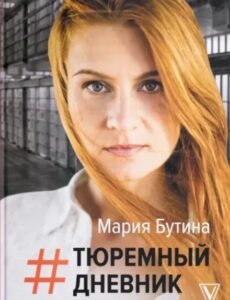
When Trump just came into power, the possibility of cooperation with Russia was discussed extensively. As you remember, Trump pushed the agenda “America first” forward, in the other words USA was the priority for Americans and interference in the life of other countries wasn’t their business. That time, Americans were cool about Crimea and they thought: “where are we and where are residents of Crimea?”. If they decided like that, so let it be. After a while, the rhetoric was changed. The propaganda works. There was a flow of the negative information about Russia. In many ways, that approach shaped the views of ordinary Americans. They were provided with the information in such a manner that it was the first step of the territorial seizure, right up to Alaska. Do you get it? It was presented as a threat to them. That’s why it’s difficult to blame people, who buy into such a cheap propaganda.
And as for inhabitants of the American outback, they don’t care about the situation. They think Russians and Ukrainians are the same nation. If people speak the Russian language, then they are all Russians. They are not interested in the topic who owns Crimea. But unfortunately, everything is quite different in the politically active and biased states.
CM: If we talk about it in general, how do you think whether it’s an antipathy or indifference?
— I would say it’s the antipathy. Because you, Crimeans, are perceived as the accomplices of that process what makes sense, as people chose their own path. But nobody wants to believe in it because the American agenda requires a foreign foe nowadays. And the reunification of Crimea with Russia is used as a red flag. They say: “just take a look at it, we knew it, Estonia will be the next and then they will reach Alaska”. Of course, it’s ridiculous. USA has got a lot of internal problems. This whole story with the interference, hackers, Crimea and other things — it’s just the effort to calm and distract their own society’s attention, find a whipping boy.
CM: How do you think whether it’s possible that the trend on searching an external enemy can be changed? Are there any circles, which are interested in it?
— In my view, it’s possible. This trend will be definitely changed. There will be a period when our mutual relationships will go back to normal. It won’t happen soon. The “Russian threat” is quite beneficial one, too many financial resources were invested into the “Russian threat”. Thus, if something works, then such practice will be exploited over and over again. People react to this stereotype very easy, which was introduced into consciousness in 1917, right after the Great October Revolution. Russians are bad, Russians are horrible, KGB, evil Russians, ushanka-hat, bear, balalaika… The whole set of stereotypes created by Hollywood, huge budgets were allocated for that. If it works, then why should we change anything? That’s why I think we will live in certain isolation for a long stretch of time. What is more, we will not be the builders of that wall. And the wall will be built not because of the “fake threat”, but the main goal of that will be a diverting the attraction from domestic problems.
CM: What do under—the—radar politicianstell about Crimea?
— Politicians are turncoats. They watch which way the wind blows. That’s why, when Trump just came to politics, there were people who told: “Well, talking about Crimea, the locals chose their way, so what?”. The fact of the matter is that Americans are afraid of the Crimean scenario, as USA has its own disputed regions like Texas. Residents of that state say: “We can also go through the process of the self-determination”. America has a dread of country’s dissolution. It’s quite obvious. There is a very deep schism between democrats and republicans. There are the states, which don’t want to submit themselves to the federal authority, thus the Crimean precedent is rather dangerous for them.
While the Trump’s rhetoric was pro-Russian — everybody perceived Crimea in the normal way. When the scandal with the Russian interference was started, which Trump just bought into to my mind, as he had reacted to it, they saw the Achilles’ heel and started to hit there. The trend was changed. I mean the media resources. Now, perhaps I won’t call any politician whether he/she is public or under-the-radar one, who would expressly tell that Crimea, referendum is the right of Russia. I want to say it’s the domestic right of Russia. Unfortunately, this event is evaluated as the act of hostility.
CM: Speaking of Big Tech. Residents of Crimea faced with blocking of their user accounts in the Western social media. How much is Russia protected in this regard? Everybody says that social media resources should move to their own platforms. We still don’t have such platforms, where we can get together. How much is it relevant for the security of the country?
— It’s very relevant and I think we will get to the necessity of creating the independent Internet called the Runet anyway. Well, listen up, people in China don’t use Facebook, WhatsApp, Google and YouTube services, they got their own social media. As for your region, the crying lawlessness happened here, when several media resources are cut and the whole their content placed on the hosting simply disappears. But this is the intellectual work! It’s good if you have copies of those works and what if you don’t have? It turns out that a person, whole region and country can be deprived of the opportunity to express their point of view. It’s very scary. And social media networks are not already a certain wall, where everybody is able to write whatever he wants on. The American social media resources ban their own American president and delete unpleasant messages, they can’t be called the wall. It’s a serious political actor. The democrats may think they control Big Tech, but in fact Big Tech controls both the democrats and financial corporations, which primarily have provided Big Tech with money.
CM: Let’s get back to your book. Unfortunately, as we know the chapter about Crimea wasn’t included into the book. We also know that the chapter will be published in your next book. For obvious reasons, Americans worry about that topic. Would you be so kind to tell our readers about the cases that took place during those interrogations and what did they want to gain from you?
— They wanted to realize how it happened that the Crimean people had made a decision on the reunification with Russia. It is surprising to hear about this issue from Americans, who are the people glorifying the democracy, power of the people and right of choice as we know. They want to sell the democracy to us, but they don’t want to build the democracy at their own country. USA is a rigid totalitarian police state. That’s why I would like to tell Crimeans not only about the issues I was asked about at the interrogations in the FBI, but also about the reaction of ordinary citizens of USA to Crimea. The first time I arrived in USA right after the referendum in 2014. I want to tell about the ambience within the student classrooms, their deep shock and the way the American propaganda represented that situation. To my mind, this part of my memories deserves many pages. The process of shaping an American information agenda in the real-time mode can be understood via highlighting the topic of Crimea. I don’t want to uncover the mystery, as people won’t be interested in reading my book then. I would add not only facts, but also the analytic investigation, as it’s the unprecedented situation showing how the American propaganda works from the event to its full interpretation.
CM: Crimea is under the foreign policy pressure for seven years initiated by the West. Crimeans are not allowed to take part in different conferences, our speeches are blocked and we are prohibited to express our ideas. How can we struggle with it?
— On the first hand, I think we should cooperate with the federal authority in our struggling activities. And there is another moment — as you know, Americans recourse to the precedent law. So, to hold a dialogue with Americans, we must use their own terminology. If they rely on the law, then I will deal with this issue — for example, the issue of the right of Crimeans to visit the neighboring country, as it turns out that every citizen of Crimea is a criminal — if he/she crosses the border then this person is arrested and tried under article 110 for violation of the territorial integrity and it is serious jail term. Of course, this is outrageous. Thus, I want to pay attention to this situation within the framework of the RT’s project called “Svoikh Ne Brosaem”. The President Vladimir Putin mentioned that situation too in 2019. I believe it’s very important to struggle together. We can win only if we come out in a united front. It’s a very long painstaking job. But in the end, I think we will be able to build allied combinations, including with Europe and countries, which are interested in “Nord Stream”. In practice, we have got the tools. I speak out against making unfounded statements that we should, well I don’t know, dive some regions in to the black out or send tanks somewhere. It’s a hard work, but we should implement it together with the government by legal methods and exploit the enemy’s tactics, which the enemies use against us.
CM: In your opinion, is the orientation towards the Asian countries able to help us? How much the dialogue with China can influence on the West?
— As for me, we shouldn’t get trapped leaving one pole and trying to join another one and find salvation there. I’ll provide you with an example of building relations from a personal life. It is not good when a person leaves his/her sweetheart for another one. Such person must determine his inner world and realize what he/she needs and then a required human or, if we talk about countries, required partner from the international arena will find you.
Currently, the domestic agenda is very important for Russia. Why do people visit Turkey when they have got Crimea for spending their vacations? I’ve spent a day in Yevpatoriya and it’s a very beautiful place though it’s much to do there. The town needs more investments. Then why wouldn’t we invest financial resources in our own country rather than orient towards China, Asia, America or other countries?
CM: Being residents of Crimea, we are strong guys and have coped with all challenges, which we have faced for these seven years. Taking our similarity with you into consideration, what would you wish to residents of the peninsula?
— Stay self-sufficient people, take a look around and realize that you live in perfect time and wonderful place. You are united with Russia — may be, that is what the Crimean people could never have imagined and you should enjoy things you have today. Yes, Crimea must have personal human rights defenders, who will uphold your rights to move around the world and I am already among these defenders. I will tell you once more, you may have a lack of wish to travel, but the point is that you must have such a right. Thereby, I wish you to stand close to each other and remember that Russians never surrender.
CM: Crimea was always the point of attraction for creative people, when should we wait for your new visit to Crimea?
— I think I will do it in the near future. We have discussed with the leadership of Crimea the possibility of holding public hearings on the situation that the major part of the former public employees of Crimea are prosecuted under the Criminal Code of Ukraine, thus they are unable to move outside of Russia. Now, I collect personal data of those people, who are imprisoned in Ukraine because of that reason. And this absolutely meets the activity I am involved in at the Civic Chamber of Russia and within the RT’s project “Svoikh Ne Brosaem”. Thus, I think the arrangements connected with this topic will be held in the peninsula very soon. It’s time to handle with the persecutions of Crimeans.

